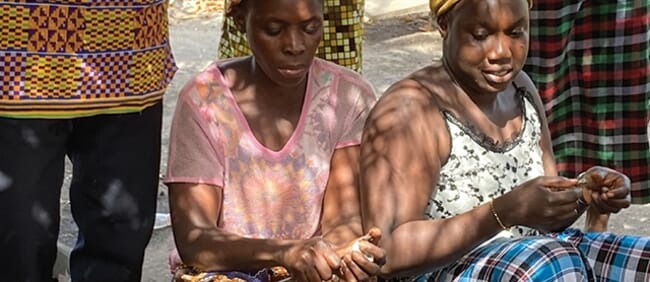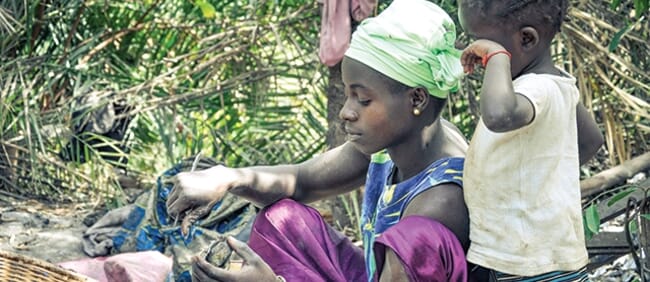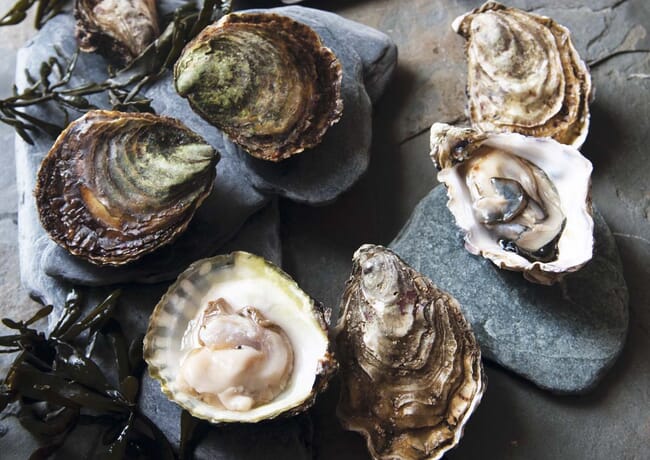
Gambia's mangrove oyster sector is an excellent driver of food security and employment for women © FISH4APC
Spurred by strong local demand, oyster production in The Gambia offers economic opportunity and social benefits, especially for women, according to an analysis presented on 29 June to experts and stakeholders, who discussed ways to reverse declining oyster stocks while improving safety and reducing the sector’s carbon footprint.
“Mangrove oysters are a small-scale, artisanal sector with great value for the food security and livelihoods of women producers in our country,” said Musa Drammeh, Minister of Fisheries, Water Resources and National Assembly Matters at an event where the findings of an analysis of Gambia’s oyster value chain were presented. He added: “To ensure that future generations can also reap the benefits we need to make oysters stocks sustainable, improve safety and lessen the impact on the environment.”
Yearly production of mangrove oysters in The Gambia is estimated at 7,000 tonnes in shell, according to the analysis conducted by FISH4ACP with the Institute of Social Research and Development (ISRAD).

Gambia's oyster sector is largely artisanal and employs around 1,000 people © FISH4ACP
The analysis also shows that the oyster sector is largely artisanal and employs around 1,000 people, most of whom are women. Oysters are sold mostly boiled on the local market, where sales are steady despite rising prices. Sales are estimated at 260 tonnes of processed oyster meat valued at USD 1.3 million.
FISH4ACP is a global fish value chain development initiative of the Organisation of African, Caribbean and Pacific States (OACPS) implemented by FAO with funding from the European Union (EU) and the German Federal Ministry for Economic Cooperation and Development (BMZ).
The initiative launched operations in The Gambia in March 2022 with a comprehensive analysis of the oyster value chain. Now, after some 250 interviews, numerous focus groups and observations all over the country, results are presented to over 40 key stakeholders and experts from across the oyster sector.

In the future, FISH4ACP will focus on ways to address concerns over decreasing oyster stocks, product safety and hygiene.
During the next two days, they will discuss ways to stimulate economic growth and foster social equity with a view to developing an upgrading strategy for a more sustainable oyster sector. Discussions will also focus on ways to address concerns over decreasing stocks, product safety and hygiene and the environmental impact of excessive use of wood in oyster processing.
“Ensuring that economic prosperity and social benefits don’t harm the environment is at the heart of the sustainable development agenda that the European Union supports,” said Stephane Meert, head of cooperation at the EU Delegation to the Gambia. He added: “FISH4ACP is a true example of the EU’s development cooperation programmes in the field of sustainable fisheries.”
“FAO welcomes this sector-wide dialogue covering the economic, social and environmental dimensions of oyster production in The Gambia,” said Moshibudi Rampedi, FAO Representative in The Gambia, adding: “It will guide FISH4ACP’s efforts in supporting this country move forward on the road towards a better environment, better production for the oyster sector, and a better life.”
Ms Rampedi noted that the oyster production benefits many people, particularly female workers. It helps these small-scale producers to feed their families and complement their livelihoods, she said.
Ms Rampedi reminded that 2022 is the International Year of Artisanal Fisheries and Aquaculture (IYAFA). “The Gambia’s oyster value chain shows how an artisanal sector can be small in scale, and big in value,” she concluded.




